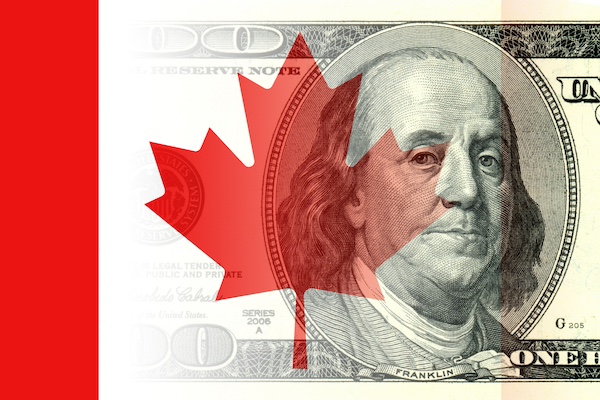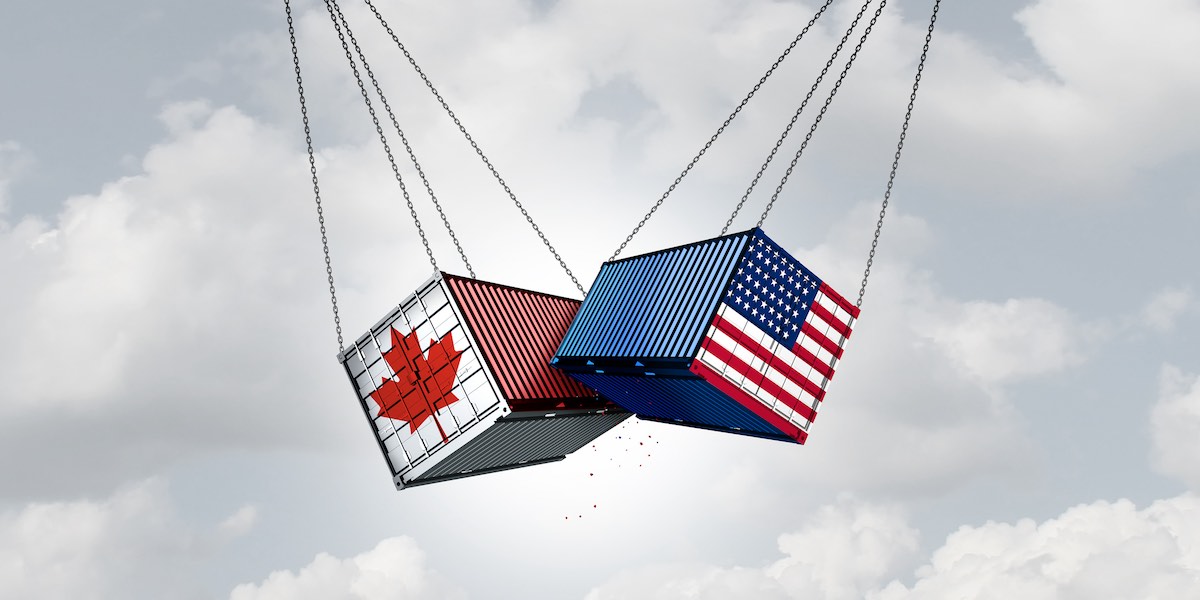“Elbows up” is a type of Canadian war cry. If a player shouts “elbows up” during a hockey game, teammates drop gloves, raise their elbows and are in position to deliver a punch. That’s how many Canadians are feeling now.
Beyond the headlines about tariffs imposed on imports is the suggestion that Canada become the 51st U.S. state. Canada isn’t a flag-waving nation, but Canadians are quietly proud of Canada and being Canadian. A survey by Leger found 90% of Canadians have absolutely no interest in joining the United States. Former Prime Minister Justin Trudeau said, in plain, un-parliamentary language, “There is not a snowball’s chance in hell that would ever happen.”
Over 20 million Canadians visit and spend more than $20.5 billion in the U.S. each year, but in February, the U.S. Travel Association (USTA) suggested they could see a 10% drop in Canadian business. That would be $2 billion cut in revenue and a possible loss of 140,000 jobs. During MPI’s 2025 Global Meetings Industry Day (GMID) broadcast last week, Geoff Freeman, president and CEO of USTA, expanded that estimate to a 10%-20% loss of Canadian business. Even that may be optimistic. Canadians are fleeing and actively avoiding the U.S. as both a vacation and business destination. In February, cross-border land crossings dropped by 473,000, a 17% year-over-year decline.
Airlines have also experienced significant drops in passenger interest. WestJet’s CEO said in two weeks in February they saw a 25% drop in U.S.-bound passengers. OAG Aviation Worldwide, which monitors the airline industry, reports forward passenger bookings from Canada to the U.S. has declined 70% year-over-year. As a result, Air Canada and WestJet redirected close to 200 flights a week from U.S. destinations to Europe and the U.K.
Added to the economic chaos are new fears about crossing the border, prompting Canada, Denmark, Finland, France, Germany, the U.K. and others to issue travel advisories for the U.S. These advisories started with the tightening of gender recognition by the U.S. and expanded with reports of Canadian, British and European travelers being held for weeks in detention centers rather than simply denied entry to the U.S. One detainee was a 35-year-old Canadian woman trying to attend a wellness expo in Tennessee. A French scientist on his way to a Houston conference wasn’t detained, but denied entry after a customs agent found a text on his phone critical of the administration’s funding cutbacks for research.
Some U.S. immigration lawyers suggest these experiences don’t represent a change in policy just more reporting of incidents. Nonetheless, non-U.S. citizens are concerned about potential problems crossing the border. News reports suggest traveling with “burner phones” and/or doing a digital cleanse of all technology before attempting to enter the U.S.
This ties in with another Leger study that found 61% of Canadian business executives no longer feel the U.S. is a reliable trading partner in the years to come.

Minto Schneider, chairperson of Meetings Mean Business Canada (MMBC), says while her group hasn’t seen hard numbers for business being moved because of the tariffs, it has heard anecdotal comments of movement.
“Early reports from venues are that Canadian corporate groups are staying in Canada versus hosting an event in the U.S.,” she said. “The perception isn’t good right now for companies to be [holding events in the U.S.]. Venues are also seeing lots of leads from European planners and groups. They haven’t pulled the trigger yet but are showing interest. Corporates can move more easily than associations as far as short-term bookings. Corporates tend to be smaller, so 100 bedrooms versus an association, which needs 500-600 bedrooms. I’ve also heard that in terms of space, corporates are taking whatever is available.”
Schneider says while the optics aren’t good right now, the MMBC is working with Meetings Mean Business in the U.S. to issue a statement decrying boycotts.
“Boycotts don’t work, and they aren’t in anyone’s best interest,” she says.
MMBC and partners will continue to market Canada as a business destination and want U.S. clients and planners to know that while Canadians are angry, their anger is directed towards one person, not the American people. Again, a Leger survey says, “When asked about the source of their frustration toward the U.S., a clear majority of Canadians (64%) and Mexicans (59%) say it is directed more toward U.S. President Donald Trump specifically rather than the U.S. as a country.”
Like the MMBC, Steve Hill, president and CEO of the Las Vegas Convention and Visitors Authority, says, “We have seen a few smaller events cancelled because of their relationship issues, but not enough at this point to cause numbers in Las Vegas to change. It’s hard to draw a conclusion from a single data point. Obviously, the tariffs and conversation around the sovereignty of Canada is not going to help tourism. It’s early for us to put numbers on that. What we don’t know is how discretionary those trips become when it’s important to do business.”
Hill adds, “A week ago, the focus was Canada; now it is both an international and domestic concern when you see the stock market drop as it has. The new concern is around the economy both internationally and domestically and not just a single location.”
The stock market roller coaster highlights the lack of clarity on costs. How much more will goods and services at destinations cost? What items, like samples and promotional materials, can cross the border without spurring a tariff or other penalty, and in what volume? And, with the fluidity which policies change—often at the stroke of a presidential pen—how concrete are prices?
In social media conversations planners want to remind clients of the value of face-to-face, but this isn’t COVID. No one is challenging the value of face-to-face, it’s where the face-to-face will occur. Does crossing the border feel too burdensome—or risky—for international groups, attendees, sponsors and exhibitors?

